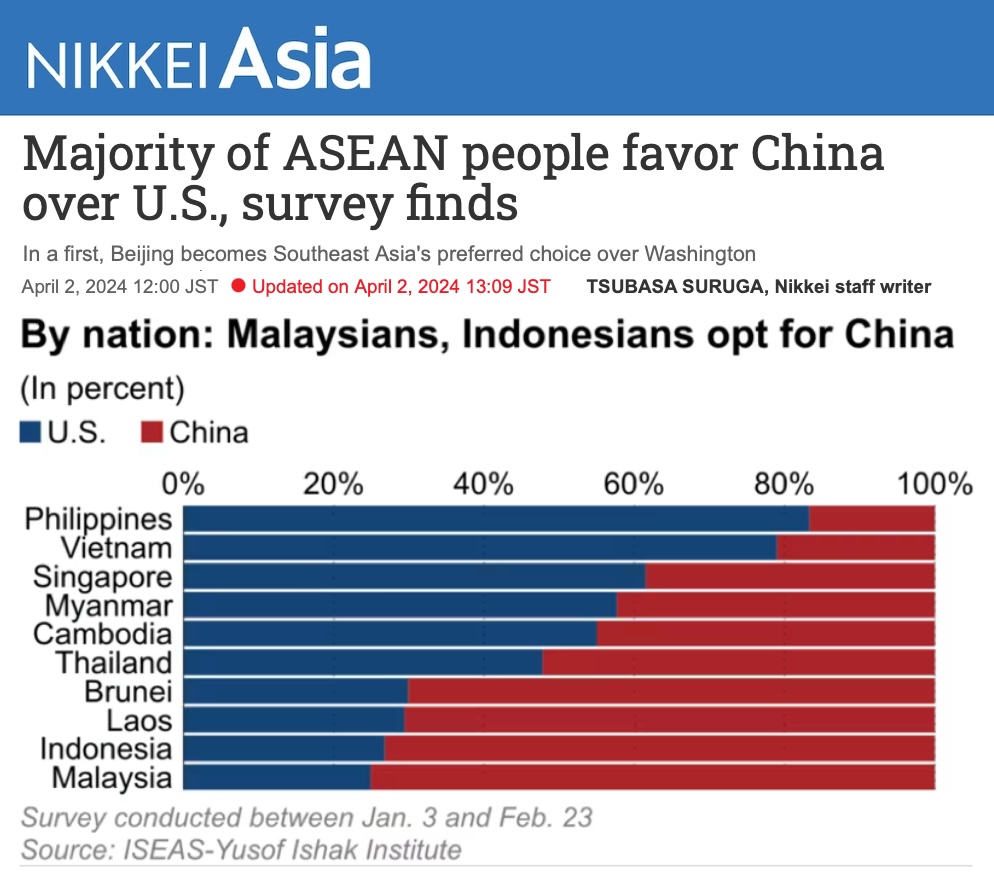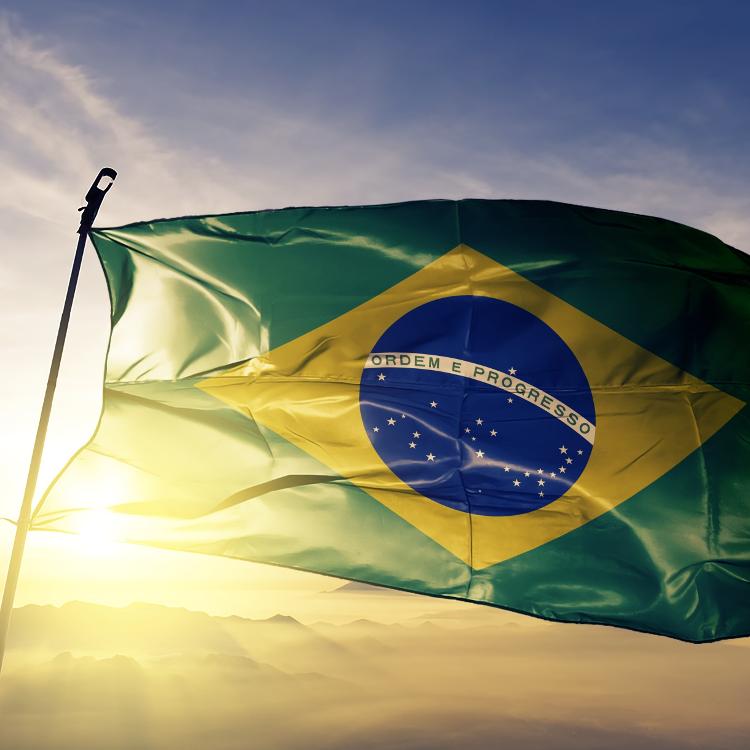Sim. Eu leio, salvo a matéria em algum site que faz isso como o https://archive.li/ ou o https://archive.vn/ além do próprio Wayback, já os vídeos eu pego mais do Twitter que compartilham, os vídeos nacionais eu coloco na velocidade 2x de reprodução, já os vídeos em inglês eu coloco a legenda em inglês e coloco na mesma velocidade de reprodução em 2x pra não perder mt tempo. É o meu método turbo.prometheus escreveu: ↑Seg Out 02, 2023 6:46 pmOlá, você lê todas essas notícias mesmo? Vi que utiliza o wayback machine, você guarda os links por assuntos então para depois revê-los, é isso?Suetham escreveu: ↑Sex Set 29, 2023 9:11 am
https://www.france24.com/en/americas/20 ... f-the-game
G77+China summit in Cuba calls on Global South to 'change the rules of the game'
https://www.reuters.com/world/americas/ ... 023-09-19/
Canada, US worked closely on possible India link to Hardeep Singh Nijjar killing
https://finance.yahoo.com/news/sideline ... 00067.html
On sidelines of UN General Assembly, Sri Lankan president calls Aukus 'a mistake' and rejects fears over China
https://geopoliticaleconomy.com/2023/09 ... aduro-oil/
China deepens ties with Venezuela, challenging US ‘hegemonic mindset’
https://www.bloomberg.com/news/articles ... s-finances?
UN Nuclear Watchdog Risks Running Out of Money on US, China Standoff
https://thespectator.com/topic/world-ev ... na-russia/
World events are not going America’s way
GEOPOLÍTICA
Moderador: Conselho de Moderação
Re: GEOPOLÍTICA
- knigh7
- Sênior

- Mensagens: 18125
- Registrado em: Ter Nov 06, 2007 12:54 am
- Localização: S J do Rio Preto-SP
- Agradeceram: 2250 vezes
Re: GEOPOLÍTICA
Daqui em diante é conflito político, étnico e religioso para tudo que é lado
Os conflitos étnicos, baseados nas aspirações irreconciliáveis de diferentes povos ao controlo da mesma terra, podem ser temporariamente congelados, mas são insolúveis no quadro da política liberal-democrática. Sem impor a ordem de cima, só há vitória ou derrota.
Tal como na década de 1990, o súbito declínio da capacidade de uma potência imperial para impor a ordem a partir de cima está a conduzir ao ressurgimento de conflitos étnicos, que serão resolvidos através da força bruta. Não será “justo” ou “justo” porque não pode ser.
Tentar encaixar as aspirações irreconciliáveis de Syldavia e Borduria no seu próprio imaginário liberal-democrático interno através de apelos à moralidade ou à justiça histórica é absurdo, mas aparentemente psicologicamente mais fácil do que aceitar a sua natureza.
Se vocês foram lerem os relatos dos sobreviventes ou vítimas do conflito étnico político Tigray Ethiopia (África), seguidos de outros conflitos étnicos ao redor do mundo, o padrão de violência é de "crimes contra a humanidade"
Já tivemos ou estamos tendo ainda
Conflict Houthi Yemen = milhões com fome e diversos crimes contra a humanidade
Conflict Tigray Ethiopia = milhões com fome, centenas de milhares de mortos e diversos crimes contra a humanidade
Conflict Myanmar Rohingya = genocídio, diversos crimes contra a humanidade e milhões de deslocados
Conflict Sudan Darfur = diversos crimes contra a humanidade
Conflict Nagorno-Karabakh = diversos crimes contra a humanidade e deslocados
e etc.
Os conflitos étnicos, baseados nas aspirações irreconciliáveis de diferentes povos ao controlo da mesma terra, podem ser temporariamente congelados, mas são insolúveis no quadro da política liberal-democrática. Sem impor a ordem de cima, só há vitória ou derrota.
Tal como na década de 1990, o súbito declínio da capacidade de uma potência imperial para impor a ordem a partir de cima está a conduzir ao ressurgimento de conflitos étnicos, que serão resolvidos através da força bruta. Não será “justo” ou “justo” porque não pode ser.
Tentar encaixar as aspirações irreconciliáveis de Syldavia e Borduria no seu próprio imaginário liberal-democrático interno através de apelos à moralidade ou à justiça histórica é absurdo, mas aparentemente psicologicamente mais fácil do que aceitar a sua natureza.
Se vocês foram lerem os relatos dos sobreviventes ou vítimas do conflito étnico político Tigray Ethiopia (África), seguidos de outros conflitos étnicos ao redor do mundo, o padrão de violência é de "crimes contra a humanidade"
Já tivemos ou estamos tendo ainda
Conflict Houthi Yemen = milhões com fome e diversos crimes contra a humanidade
Conflict Tigray Ethiopia = milhões com fome, centenas de milhares de mortos e diversos crimes contra a humanidade
Conflict Myanmar Rohingya = genocídio, diversos crimes contra a humanidade e milhões de deslocados
Conflict Sudan Darfur = diversos crimes contra a humanidade
Conflict Nagorno-Karabakh = diversos crimes contra a humanidade e deslocados
e etc.
- prometheus
- Avançado

- Mensagens: 502
- Registrado em: Sáb Jul 04, 2020 11:07 am
- Agradeceram: 62 vezes
Re: GEOPOLÍTICA
Tomei os assuntos do tópico de Israel para postar esses referentes a geopolitica... como não sei se tem relação com o conflito em Israel, preferi colocar aqui.Duka escreveu: ↑Seg Out 09, 2023 6:38 pmOu é uma grande conspiração (que eu acho inverossímil) ou esse tipo de declaração indica justamente um motivo para passar desapercebido os planos: soberba e excesso de confiança. Acreditar demais na própria capacidade e subestimar o fato de que do outro lado também existem cabeças pensantes nunca é algo muito positivo.
Re: GEOPOLÍTICA
O Irã será o maior beneficiário do que ocorrerá em Gaza, se a ofensiva terrestre for realmente o plano executável da IDF nos próximos dias. Além desse projeto IMEC sofrer algum tipo de reformulação ou cancelamento total(para a vantagem dos Estados descontentes, teremos envolvimentos muitos maiores que serão desencadeados, com consequências derivadas da ação da IDF, todos eles para o benefício do Irã, envolvimentos fatalmente perigosos para a estabilidade da região.
Vou resumir, no momento, não tenho como formular uma resposta melhor: o Irã é o maior interessado na destruição do Hamas.
Vou resumir, no momento, não tenho como formular uma resposta melhor: o Irã é o maior interessado na destruição do Hamas.
- prometheus
- Avançado

- Mensagens: 502
- Registrado em: Sáb Jul 04, 2020 11:07 am
- Agradeceram: 62 vezes
Re: GEOPOLÍTICA
Russia-Israel relations fracture after Putin's muted reaction to Hamas assault – WSJ
Israel and Russia continued to maintain relations even after Putin's invasion of Ukraine. Jerusalem also refused to supply Kyiv with military aid, despite Western pressure.
However, after the Hamas terrorist attack on Israel, Putin became one of the few world leaders who did not express condolences to Prime Minister Benjamin Netanyahu. Moscow has not officially condemned the Hamas attack.
This put an end to relations between Jerusalem and the Kremlin, which proves "a larger tectonic shift in Russia's role in the Middle East" since Putin started the war in Ukraine, the newspaper states.
In contrast, while scrambling for weapons and allies for its failed invasion, Russia has changed its relationship with the chief enemy of Israel, Iran, with whom it now exchanges arms, and has begun to strengthen ties with Arab states.
In addition, the Kremlin has internal reasons to welcome a war far from its borders as it diverts attention from Russia's internal problems and from the failures at the front in the war against Ukraine, the article says.
Putin reacted to the war in Israel for the first time on Oct. 10, calling it "a vivid example of the failure of U.S. policy" that allegedly "did not take into account the interests of the Palestinian people" in creating a Palestinian state.
https://www.msn.com/en-us/news/world/ru ... r-AA1ifFga
https://www.foreignaffairs.com/israel/h ... arab-world
Hamas Has Fractured the Arab World
America Must Help Prevent a Wider Conflict—in the West Bank and Beyond
WHAT WILL THE NEIGHBORS THINK?
Like the rest of the world, Arab governments were caught off guard by the unprecedented scale and brutality of Hamas’s attack. They shared Israel’s assumption that Hamas was not currently interested in a major escalation but was instead busy with the demands of governing Gaza and deterred by Israel’s carrots and sticks. Before October 7, it seemed that Hamas’s strategy focused on destabilizing the West Bank while maintaining a measure of calm in Gaza.
[...]
Consider Israel’s close neighbors, Egypt and Jordan, both of whom reacted cautiously in the immediate aftermath of the attack. Egyptian officials refrained from condemning Hamas, called for de-escalation, and criticized Israeli policies toward the Palestinians. Jordan reacted similarly, expressing support for the Palestinian cause. Indeed, both Jordan and Egypt have populations that are highly supportive of the Palestinians and have immediate national security concerns to think about. And both governments are challenged domestically by Islamist opposition groups that are sympathetic to Hamas.
The situation among the Arab Gulf states is similarly complex. Qatar, which backs Hamas and funds Gaza, has held Israel “solely responsible” for the escalation, mirroring Hamas’s rhetoric. Moreover, Al Jazeera’s Arabic language channel, a news station funded by Qatar that reaches tens of millions of people across the Arab world, has effectively served as a mouthpiece for Hamas.
By contrast, Bahrain and the United Arab Emirates condemned Hamas, with the Emirati government calling the group’s actions a “serious and grave escalation” and declaring that it was “appalled” by the attacks on civilians. These statements come at a time when diplomatic relations between Israel and the two countries are delicate. Since joining the Abraham Accords both Bahrain and the UAE have taken significant steps to enhance economic and security ties with Israel. But diplomatic and political ties had come under pressure in recent months as a result of inflammatory comments and provocative actions by Israel’s far-right government concerning Palestinians in the West Bank and particularly Jerusalem.
Policymakers are watching Saudi Arabia especially closely. At the time of the Hamas attack, the Biden administration appeared to be making headway toward brokering a historic agreement between Saudi Arabia and Israel to normalize relations. In addition to anchoring Saudi Arabia firmly in a U.S. security umbrella at a time when Washington has been perceived as pivoting away from the Middle East, these negotiations also aimed at securing significant Israeli commitments regarding the Palestinian issue. But Saudi Arabia plays a leading role in the Islamic world as guardian of Islam’s holiest sites, and the Palestinian cause remains popular among Saudis. Moreover, talk of normalization with Israel has exposed the kingdom to accusations that it was abandoning the Palestinian issue. With the outbreak of war between Hamas and Israel, these talks have come to a halt. The Saudi government cannot appear to be cultivating ties with Israel at a time when the country is in an active conflict with the Palestinians. Indeed, it is likely that the Hamas attack was, at least in part, aimed at disrupting Israeli-Saudi rapprochement.
Following the attack, Riyadh issued a careful statement in support of Palestinians that neither approved of nor condemned Hamas’s actions. At the same time, Saudi Arabia has remained in close contact with the United States and key Arab countries. The Saudi crown prince even had a phone call with the president of Iran, the kingdom’s longtime rival and Hamas’s chief backer. Clearly, the Saudi government is trying to achieve two different objectives. On the one hand, Riyadh is seeking to maintain and bolster its leading role in regional diplomacy. Although traditionally cautious, the country has taken a far more proactive approach to foreign relations under Crown Prince Mohammed bin Salman, known as MBS, its de facto leader. On the other hand, Saudi Arabia remains committed to its longtime goal of establishing a Palestinian state, even though it is aware that this is not possible in the short term. Saudi Arabia likely feels the need to burnish its pro-Palestinian credentials.
[...]
For years now, a political and security vacuum has been emerging in the West Bank—a trend that has accelerated since Israel formed the most hardline government in its history last year. Along with the newly hostile Israeli leadership, Palestinians have faced growing settler violence, and relentless expansion of settlements. But this deterioration is not only a result of Israeli policies. The Palestinian leadership is aging, unpopular, and sclerotic. Widespread corruption, poor governance, and increasingly authoritarian tendencies have led a majority of Palestinians to lose faith in their leaders and governing structures. Today, 80 percent of Palestinians consider the PA to be corrupt, and most want its 89-year-old president, Mahmoud Abbas, to step down. As a result, the PA finds itself unable to exert control on the ground.
[...]
An escalation in the West Bank would have enormous repercussions across the region. Not only would the human toll be high, but given the PA’s fragility, fighting could cause the organization’s collapse. Many groups would welcome such a fall, including Hamas and terror organizations in the West Bank, such as the Lions’ Den. If the PA collapsed, the political vacuum in the West Bank would likely lead Israel to once again directly rule the territory, spill over to Jordan, and upend the broader regional and international diplomatic approach to the Palestinian-Israeli conflict, which has long treated the PA as the Palestinians’ representative in the efforts to create an eventual two-state solution. Given all that is at stake, preventing the war from spreading to the West Bank should be among the highest priorities in Washington and among its close Arab allies.
Geopoliticamente, tendo em vista esse cenário, em que a Rússia se aproxima do Hamas por conta do apoio do Irã em sua guerra na Ucrânia e, ainda, o Irã ao Hamas e Hezbollah sabendo que desestabilizará Israel e ainda indiretamente a força regional da Arabia Saudita, é bem possível que um novo eixo "Irã-Russia-Turquia" não oficial apareça por lá com o beneplácito chinês, reduzindo a esfera de influência americana naquela posição. O corredor IMEC, por exemplo, que ao que parece estava sendo construído estrategicamente por meio de acordos costurados pelos EUA com Israel e outros países do Oriente Médio (os de Abraão e possivelmente os que se trataria com Arabia Saudita), não mais se concretizará, ou ao menos serão paralisados, desfavorecendo os interesses indianos (que está sendo usada pelos ocidentais como contraposição a China) e europeus.https://www.aa.com.tr/en/europe/israeli ... an/3001286
Israeli premier might visit Türkiye in October or November: President Erdogan
Erdogan said he will travel to Israel after Netanyahu's visit to Türkiye.
"It is known to everyone that Israel is seeking to transport its resources to Europe. The most rational route is to deliver these resources to Europe via Türkiye," Erdogan added.
The president added there are also opportunities for cooperation in drilling activities.
[...]
Logo, é de supor que financiar o Hamas, ainda que de raiz sunita, seja um ótimo empreendimento para, a um primeiro momento, iranianos com a desestabilização e remontagem da região, a um segundo, aos russos que se beneficiarão conquistando um aliado duradouro contra os ocidentais, ainda mais em sua guerra na Europa, a um terceiro, aos turcos, com as diversas oportunidades que estão lhes aparecendo para barganhar (contra os europeus e ocidentais, principalmente) e, por último, aos chineses em certa medida, sabendo que a criação desse corredor favoreceria muito aos indianos e ocidentais.
E para nós?
Penso que, nisso tudo, agora está o momento certo para o Brasil atuar a todo vapor na reformulação do conselho de segurança da ONU não demonstrando apoio a nem um e a nem outro, visto que ficará cada vez mais evidente o seu descrédito e enfraquecimento perante a comunidade internacional... na realidade ele já não mais atende a atual geopolítica mundial mesmo não... e, ao que se parece sinalizar, essas guerras são proxies e de atrito, logo tenderão a vir pra ficar por bastante tempo... Por isso é perfeito para o Brasil liderar esse movimento, só não creio que tenhamos alcance internacional sabendo que nosso país está, no plano interno, defasado (não promove reformas estruturais fundamentais) e se enfraquecendo cada vez mais com endividamentos e más gestões dos recursos públicos... Não prosperamos nem dentro de casa, então fica difícil demonstrarmos que somos um bom candidato nesse cenário. Mas claro, isso tudo no meu entendimento... até porque existem países que nos são contra o pleiteio a vaga no conselho e neles estão o México e a Argentina. Contra Argentina até tudo bem, mas se o Brasil não estiver bem contra um México, acho difícil. Inclusive, é de certeza que EUA até prefira uma Índia no conselho, e o fortalecimento do México com a USMCA nos põe em cheque também... os piores nos são definitivamente México e EUA com os ocidentais (uma Espanha também talvez), mais que os do "eixo" propriamente. Como uma reformulação, se houver, vem ao encontro dos interesses do "eixo" (Irã-China-Russia), é de óbvio que estes venham a nos apoiar, logo não se faz necessário apoiá-los abertamente, só insinuar.
- knigh7
- Sênior

- Mensagens: 18125
- Registrado em: Ter Nov 06, 2007 12:54 am
- Localização: S J do Rio Preto-SP
- Agradeceram: 2250 vezes
Re: GEOPOLÍTICA
https://africacenter.org/spotlight/chin ... me-africa/
China’s “Military Political Work” and Professional Military Education in Africa
https://www.scmp.com/news/china/diploma ... ala-summit
China reúne países do G77 para grande reforma da OMC e Bretton Woods na cimeira de Kampala
O vice-primeiro-ministro chinês, Liu Guozhong, obtém apoio, inclusive de líderes da ONU, para discurso que pede a revisão dos sistemas globais
Os decisores do grupo G77 mais a China reúnem-se em Kampala, onde a presidência passou de Cuba para o Uganda
https://asiatimes.com/2024/01/chinese-y ... -the-gulf/
Chinese yuan gaining greater currency in the Gulf
https://www.rt.com/business/590794-yuan ... dominance/
China hints at its asymmetric warfare system aimed at dethroning US dollar
For Beijing, it’s not so much about replacing the greenback within the current system but creating an entirely separate alternative
https://www.scmp.com/news/china/diploma ... t-stay-way
Why China, the only permanent Asian member of the UN Security Council, wants it to stay that way
- knigh7
- Sênior

- Mensagens: 18125
- Registrado em: Ter Nov 06, 2007 12:54 am
- Localização: S J do Rio Preto-SP
- Agradeceram: 2250 vezes
- cabeça de martelo
- Sênior

- Mensagens: 37823
- Registrado em: Sex Out 21, 2005 10:45 am
- Localização: Portugal
- Agradeceram: 2602 vezes
- cabeça de martelo
- Sênior

- Mensagens: 37823
- Registrado em: Sex Out 21, 2005 10:45 am
- Localização: Portugal
- Agradeceram: 2602 vezes
- cabeça de martelo
- Sênior

- Mensagens: 37823
- Registrado em: Sex Out 21, 2005 10:45 am
- Localização: Portugal
- Agradeceram: 2602 vezes
Re: GEOPOLÍTICA
https://www.linkedin.com/posts/geopol21 ... 9650-PYCK/
Militarización del Ártico.
Rusia, Canadá y Estados Unidos, conscientes de la importancia de las aguas del Ártico, han llevado a cabo una ampliación de sus despliegues militares en la zona.
https://media.licdn.com/dms/image/D5622 ... PaVUW3B8Gs
https://www.limesonline.com/video/limes ... 1-P6-S1-T1
Corea del Nord, Corea del Sud e Taiwan: il terzo fronte della Guerra Grande


Militarización del Ártico.
Rusia, Canadá y Estados Unidos, conscientes de la importancia de las aguas del Ártico, han llevado a cabo una ampliación de sus despliegues militares en la zona.
https://media.licdn.com/dms/image/D5622 ... PaVUW3B8Gs
https://www.limesonline.com/video/limes ... 1-P6-S1-T1
Corea del Nord, Corea del Sud e Taiwan: il terzo fronte della Guerra Grande
https://asia.nikkei.com/Politics/Intern ... finds?s=09Majority of #ASEAN people favor #China over #US, survey finds
Washington gained strong support from the Philippines and Vietnam at 83.3% and 79%, which in part reflects tensions the two have with China due to overlapping claims in the South China Sea.
In a first, Beijing becomes Southeast Asia's preferred choice over Washington. Yet the survey showed that Southeast Asians do not want to choose sides at all.
Among the 10 countries of the Association of Southeast Asian Nations, the possible alignment to China was most evident among respondents from Malaysia, at 75.1%, followed by Indonesia and Laos at 73.2% and 70.6%.
Over half of Southeast Asians would now prefer to align with China over the U.S. if ASEAN were forced to choose between the rival superpowers, a regional survey by a Singapore-based think tank showed Tuesday, reflecting Beijing's growing influence in the region.
According to the State of Southeast Asia 2024 survey, compiled by the ISEAS-Yusof Ishak Institute, 50.5% of respondents opted for China and 49.5% preferred the U.S. if ASEAN had to pick sides -- the first time Beijing edged past Washington since the annual survey started asking the question in 2020.
Last year's survey showed 38.9% preferred China and 61.1% chose the U.S.
The think tank's flagship survey polls people from the private and public sectors, as well as academics and researchers in Southeast Asia. Hence, it presents the prevailing attitudes among those in a position to inform or influence policy on regional issues.
"It seems like this is the beginning of a trend as ... this is the first time China has actually [edged past the U.S.]," Danny Quah, dean of the Lee Kuan Yew School of Public Policy at the National University of Singapore, said on Tuesday during an online seminar on the latest annual report. "But if we look at the underlying data, it is actually more like a seesaw pattern than a trend."
Among the 10 countries of the Association of Southeast Asian Nations, the possible alignment to China was most evident among respondents from Malaysia, at 75.1%, followed by Indonesia and Laos at 73.2% and 70.6%. They all have benefited significantly from China's Belt and Road infrastructure initiative and robust trade relations.
China has been Malaysia's top trading partner for over a decade and has invested billions across key sectors. Last year, the Malaysian government said the Chinese automaker Geely, which holds a 49.9% stake in local partner Proton, would invest around $10 billion in Malaysia's automaking hub in the western state of Perak.
Reflecting Indonesia's strong economic ties, President-elect and Defense Minister Prabowo Subianto on Monday met with Chinese President Xi Jinping in his first overseas visit after winning the election. Last year, Southeast Asia's largest economy opened the region's first high-speed railway, which was jointly built with China.
Meanwhile, Chinese state-owned companies are stepping up investments in power infrastructure in Laos, which counts Beijing as its top investor.
Conversely, the U.S. has seen a decline in its popularity as the preferred superpower.
Washington gained strong support from the Philippines and Vietnam at 83.3% and 79%, which in part reflects tensions the two have with China due to overlapping claims in the South China Sea.
However, a separate question regarding Washington's Southeast Asia policy revealed that 38.2% feel the level of U.S. engagement with Southeast Asia has decreased under the administration of President Joe Biden, topping the 25.2% who said it has increased.
Bonnie Glaser, managing director of the Indo-Pacific Program at the German Marshall Fund, a U.S.-based think tank, noted the decline in trust and perception of decreased engagement from the U.S. is notable, adding that its performance has been "a disappointment."
"There is a high level of expectation in Southeast Asia and desire for U.S. engagement, particularly different kinds of engagement than the U.S. is actually offering," Glaser said. As an example, she raised the Biden administration's Indo-Pacific Economic Framework (IPEF) that lacks the concept of market access, which involves reducing or eliminating tariffs.
Yet the survey showed that Southeast Asians do not want to choose sides at all. Asked how ASEAN should respond to the intensifying U.S.-China rivalry, just 8% said the bloc has to choose between them because remaining neutral is impractical, while 46.8% said it should prioritize bolstering its resilience and unity to counter pressure from both the U.S. and China.
Other findings of the survey include that 59.5% of the respondents see China as the most influential economic power in Southeast Asia, far ahead of the U.S. at 14.3%. Meanwhile, 43.9% said China is the most influential political power in the region, versus America's 25.8%.
"[The report] is a statement of the fact that people think China has become the most influential economic power," said Quah of NUS. "But at the same time ... levels of concern about the degree of influence are actually extremely high."
He added, "The fact that China is acknowledged as most influential does not mean acceptance of them, similarly if it were the U.S."
The survey was conducted between Jan. 3 and Feb. 23, collecting answers from 1,994 people. Among the respondents, 33.7% were from the private sector; 24.5% from the government; 23.6% from academia, think tanks and research institutions; 12.7% from nongovernment organizations and media; and the remaining 5.6% from regional or international organizations.

Here's my mindmap of China's Nine-Dash Line and their Maritime Activities in the South China Sea.
CHINA'S SOVEREIGNTY CLAIMS OVER THE ISLANDS & ROCKS WITHIN SOUTH CHINA SEA (The Spratlys):
Even though China cites historical claims based on ancient maps, they have no evidence of "continuous and exclusive control" from ancient times to present -- called "effective occupation" in international law -- over the Spratlys
Some of these features within the South China sea are not rocks or islands but are "low-tide elevations" that do not generate maritime territories and EEZ; therefore, China (or any country) cannot have sovereignty claim over these features.
CHINA'S MARITIME ACTIVITIES IN THE SOUTH CHINA SEA
Their activities violate UNCLOS since they encroach upon the EEZ exclusive rights of the Philippines and other nations
They disrupt "freedom of navigation" under UNCLOS
The 2016 PCA Tribunal ruling says that Nine-Dash Line has no legal basis and violates UNCLOS

https://asiatimes.com/2024/04/cambodia- ... ing-canal/#Cambodia getting a #China backed, game-changing canal
Funan Techo Canal will allow Cambodia to bypass Vietnam for its international trade and pull it even tighter into Beijing’s sphere of influence.
Cambodia wants to divert Southeast Asia’s Mekong River into a planned US$1.7 billion, Chinese-financed shipping canal to reach a deep-sea port at Kep near Sihanoukville on southern Cambodia’s Gulf of Thailand coast.
The Funan Techo Canal would enable Cambodians to be “breathing through our own nose,” said newly elected Prime Minister Hun Manet, son and heir to long-time authoritarian former prime minister Hun Sen.
Cambodia, for the first time, could import and export goods by ship from its capital Phnom Penh’s port via the canal to a would-be deepwater port in Kep province on the Gulf of Thailand, opening onto the South China Sea.
Ships to and from Hong Kong, Singapore and other ports could reroute, or add shipping lanes, to Kep to access the canal if it increases trade. Shipping containers from those ocean-going vessels would be transferred by cranes at Kep to and from canal barges.
A successful Chinese-financed canal would also deepen Beijing’s economic, diplomatic and other links with Phnom Penh while lessening Cambodia’s dependence on Hanoi.
In 1994, the lack of a canal allowed Vietnam to block Cambodia’s shipping through the Mekong Delta because of a feud between the two countries.
Beijing reportedly signed the canal agreement with Phnom Penh under China’s Build-Operate-Transfer contract. Officials from China’s Belt and Road Initiative participated in the signing.
Cambodia “did not borrow money from China to build the canal,” said a delighted Prime Minister Hun Manet.
“Based on the contract for Funan Techo Canal, the Chinese company would manage the canal, including maintaining it and making a profit from charging for passage through the canal,” reported ThinkChina, a Singapore-based online information site.
“The Chinese company would transfer the management of the canal to the Cambodian government after a period of time, around 40 to 50 years.
“The Funan Techo Canal is one among many other of China’s key infrastructure projects in Cambodia,” ThinkChina’s researcher Sokvy Rim said.
Blueprints reportedly portray the canal as 180 kilometers long and 100 meters wide upstream, tapering to 80 meters further south.
Its “consistent depth of 5.4 meters” would handle cargo ships up to 3,000 deadweight tonnage. Ships would sail through three watergates, under 11 bridges, and along 208-kilometers of sidewalk.
More than 1.5 million Cambodians live along the route. It is unclear how many would be displaced by the project and where they would go.
The canal is close to Cambodia’s coastal Sihanoukville Special Economic Zone, the country’s busy premier deepwater port which Chinese investment and its Belt and Road Initiative is boosting.
Also nearby, the US is locked in a feud with Cambodia over Ream Naval base because it received Chinese financing and is open to international shipping, which Washington fears could eventually include Chinese warships.
If dug, the Funan Techo Canal could negatively impact nearby Vietnam’s profitable Cai Mep and other ports close to Ho Chi Minh City along the Mekong Delta’s mouth, which also opens on the South China Sea.
Currently, when Cambodia uses the Mekong River to import raw materials from China, or export finished products to the US, Europe and elsewhere, those ships carrying millions of tons of material must pass through Vietnam’s Mekong Delta to link Phnom Penh and Cambodia’s other upriver ports with the South China Sea.
Vietnam had been hoping its Mekong mouth monopoly would profit Hanoi if it was sweetened for Phnom Penh.
For example, earlier this year Cambodia and Vietnam signed a Treaty on Waterway Transportation to reduce restrictions on cross-border navigation, speed ships’ movements, streamline customs and immigration, and untangle other bureaucratic knots on the Mekong.
Vietnam, meanwhile, may also suffer from the planned canal’s drain on the Mekong’s fresh water. The Mekong is already considered an endangered river.
It originates in Tibet’s unpopulated glaciers and melts southeast, hitting several hydro-electric dams in China, Laos, and northern Cambodia which have already lessened the Mekong’s downriver volume.
The Mekong flows southeast from China and Laos into Cambodia, and on through southern Vietnam to the South China Sea.
As the Mekong passes Phnom Penh, some water bulges into a Tonle Sap Lake. Nearby downriver, the relatively narrow Bassac appears as a “distributary,” draining the Mekong to fill the Bassac’s own flow southeast across Vietnam to the Mekong Delta and sea.
The canal links Kep to the Bassac River, where vessels can switch to the Bassac, which is sourced nearby at the Mekong. To flood the canal and keep cargo vessels afloat, the Bassac River may need much more water from the Mekong.
That could negatively impact Vietnam’s Mekong Delta fishing areas, irrigation systems, and other riverside infrastructure and ecological systems.








